|
|
This week in: Peace & Security Publications |
IPSI | Africa | Americas | East Asia | Middle East | South Asia
|
|
|
|
|
This week in Peace & Security Publications
|
|
|
|
|

Central America Monitor
The U.S. has increased foreign assistance to Central America in an effort to address the violence, poor governance, and lack of opportunities driving migration from the region. Is U.S. assistance having the desired impact? How can we …
|
|
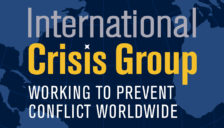
Blocked Transition: Corruption and Regionalism in Tunisia
Corruption and clientelism are undermining democratic transition in Tunisia, a unique success story after the 2011 Arab uprisings. To put the country back on track, the government should launch a national economic dialogue …
|
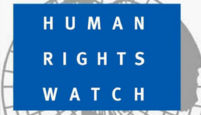
“Punishing the Patient”
Each year, an estimated 28,500 Guatemalans experience advanced, chronic illnesses, such as cancer; heart, lung, or renal disease; and HIV/AIDS. Many thousands of them will suffer significant pain related to their illness.
|
|
|
|
|
|
|
IPSI Summer Symposiums in Bologna and Sarajevo. Spots filling quickly, apply online now.
|
|
|
|
|
This week in Sub-Saharan Africa
|
|
|
|
|
DEMOCRATIC REPUBLIC OF THE CONGO: Ebola outbreak declared after 3 deaths
As of Friday, the country’s health minister and the World Health Organization (WHO) have confirmed three deaths due to the Ebola virus in a new outbreak in the remote northern province of Bas-Uele located near the border with Central African Republic. WHO is deploying teams to assess the extent of the outbreak. The teams have already identified 18 suspected cases and are monitoring more than 400 people since the first death occurred on April 22. Comment: The country has previously suffered seven known Ebola outbreaks; the last outbreak spread across West Africa killing 11,300. If this outbreak becomes large-scale, a recently developed experimental vaccine of which 300,000 emergency doses are available could be used. (Al Jazeera, AP 1, 2, 3, Reuters 1, 2, 3)
|
|
|
|
|
|
ETHIOPIA: 23 sentenced for links to extremist groups
On Wednesday, the Ethiopian Federal High Court sentenced 23 people to up to 15 years in prison for their links to al-Qaida and al-Shabbab. Court officials said the accused had been planning to carry out terror attacks in the country as well as establish an Islamic state. Comment: According to the charge sheet, the defendants were active in six cities in Ethiopia between 2010 and 2014. They were accused of recruiting and training individuals in Somalia. (Fana Broadcasting Corporation, News Ghana, AP)
|
|
|
|
|
|
IVORY COAST: Soldiers accept deal, ending four-day mutiny
On Tuesday, Ivory Coast’s government reached an agreement with 8,400 mutinous soldiers, ending a four-day revolt that had paralyzed the country’s economy, closed schools and businesses, and shut down major roads. The soldiers agreed to hand back control of the entrances to the city of Bouake to the police and return to their barracks in exchange for an immediate bonus payment of USD 8,400 plus an additional payment in June. At least two people have been killed and nine wounded since the unrest began on Sunday. Comment: This recent mutiny resulted from the government’s inability to pay the bonuses previously promised in negotiations after unrest in January. Most of the mutinous soldiers are former rebel fighters who helped President Alassane Ouattara ascend to power and were then integrated into the country’s army. International news sources say the agreement risks provoking other factions of the military, who may resent the former rebels’ ability to gain concessions. (Al Jazeera 1, 2, 3, AP, BBC, Reuters)
Researched/Written by Jessica Himelfarb
|
|
|
|
|
This week in the Americas & Caribbean
|
|
|
|
|
MEXICO: Journalist Javier Valdez shot dead
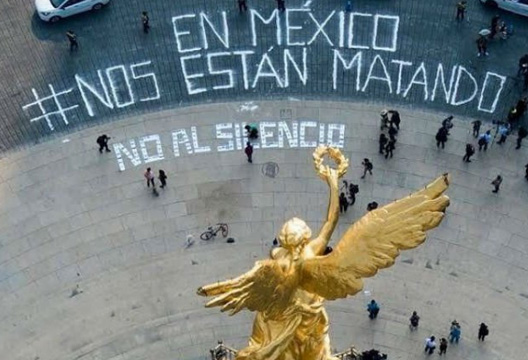 |
|
On Monday, Javier Valdez, an award-wining Mexican journalist, was shot dead by a group of unidentified attackers in Culiacan city, in the state of Sinaloa. Valdez received the International Press Freedom award in 2011 for his work covering drug-trafficking and organized crime in Mexico, including the powerful Sinaloa drug cartel. Valdez is one of several journalists who have been killed in Mexico this year. Journalist all over Mexico have announced a day of demonstrations, using the hashtags #NosEstanMatando #UnDiaSinPeriodismo and #NoAlSilencio (#TheyAreKillingUs #ADayWithoutJounalism and #NoToSilence). Comment: According the Nacional Commission for Human Rights more than 100 journalists have been murdered in Mexico since the year 2000. Additionally, international organizations such as Amnesty International, Journalists without Borders, and Human Rights Watch have classified Mexico as one of the most dangerous countries to practice journalism. (El Universal, Huffington Post Mx, BBC, CNN)
|
|
|
|
|
|
UNITED STATES: 9 injured in protest outside Turkish Embassy in Washington, D.C.
|
 |
On Tuesday, a violent confrontation between supporters and opponents of Turkish President Tayyip Erdogan, outside the Turkish Embassy in Washington D.C, resulted in 9 people injured and 2 arrests. The fighting sparked when a group of demonstrators started to chant anti-Erdogan slogans and held up signs that read “Free Demirtas,” a reference to Selahattin Demirtas, the jailed leader of the Kurdish Peoples’ Democratic Party. Supporters of Erdogan responded with verbal aggravations that incited the violent confrontation. Local uniformed police officers intervened in an attempt to restore order. According to Anadolu Agency, a state-owned Turkish news service, members of the president’s security team were involved in the fighting. Comment: The protest came after Erdogan’s visit to the White House on Tuesday. The ongoing crisis in Syria and Iraq have escalated the internal conflict between Turkey and Kurdish insurgents, some of which claim independence. (CNN, New York Times, Washington Post)
|
|
|
|
|
|
VENEZUELA: President Maduro extends State of Emergency
On Tuesday, President Nicolas Maduro declared the extension of a nationwide state of economic emergency for 60 additional days. The economic emergency involves taking available resources from the previous financial year, assigning extra funds to health, education, food, and housing; designing and implementing measures to prevent tax evasion; and giving the executive the “authorization to address the causes of the current situation.” The measures aim to “restore economic security and guarantee access to basic services for the population.” In addition, the emergency decree allows for the temporary restriction of some constitutional rights and liberties due to “the extraordinary circumstances in the social, economic and political order that have an impact on the constitutional order, social peace, security of the Nation, public institutions and residents of the Republic.” Comment: According to the government the measure means to “defend and guarantee citizens a dignified life, to protect them against threats, to maintain the constitutional order, to restore the social peace that guarantees an opportune access to basic goods and services, so they can enjoy their rights in an environment of peace and stability.” Article 236 of the Bolivarian Constitution allows Venezuela’s head of state to prolong a 60-day state of emergency, allowing the government to implement exceptional measures. This is the seventh-time Maduro has done so. (El Nacional, El Nuevo Herald, Telesur, El Universal)
Researched/Written by Silvina Zbikoski
|
|
|
|
|
|
This week in East Asia & Pacific
|
|
|
|
|
AUSTRALIA/PAPUA NEW GUINEA: Closure of asylum seeker detention center amidst human rights concerns
On Monday, Papua New Guinea (PNG) and Australian Immigration officials announced that part of the Manus Island camp would close May 28 and all asylum seekers would be removed by October 31. The 829 men held at the Manus Island detention center were told their options are relocating to a transit center in the PNG community or returning to their countries of origin. Human rights groups say relocating hundreds of people held in the Australian-run detention center would expose asylum seekers to violence and inadequate medical care. Comment: Human rights groups and the UN have condemned Australia’s controversial offshore processing regime. Previous reports suggest that the detention center conditions were made progressively worse in order to coerce people to accept resettlement in PNG. (Al Jazeera, BBC, The Guardian)
|
|
|
|
|
|
INDONESIA: Two gay men sentenced to 85 lashes
On Wednesday, an Islamic court in the province of Aceh sentenced two men to 85 lashes of cane for engaging in gay sex, despite opposition from human rights groups. This public caning is the first time laws against homosexuality have been used since they were introduced in 2014. The sentence was more severe than the 80 lashes sought by the prosecutor and is due to be carried out next week. Comment: Aceh is the only province in Indonesia that criminalizes same-sex relations and uses strict religious law as its legal code in addition to national criminal law. The two men chose to represent themselves and said they would not appeal the verdict. (Channel News Asia, BBC, The Guardian)
|
|
|
|
|
|
SOUTH KOREA: Calls for reopening communication with North Korea
On Wednesday, South Korea’s unification ministry said it wants to re-establish an inter-Korean communication hotline. The communications channels between the two states were severed in February 2016 following North Korea’s nuclear and missile tests and the subsequent sanctions. The reopening of communications with the North is part of South Korea’s new president Moon Jae-in policy aimed at sanctions and dialogue with the North. Comment: The communications channels between the two Koreas was set up in 1971 and has been periodically disconnected when inter-Korean relations worsened. The liberal president Moon Jae-in took office last week with pledges to seek denuclearization and dialogue with the North. (Channel News Asia, Yonhap News, Al Jazeera)
Researched/Written by Kanstantsin Ivanou
|
|
|
|
|
|
This week in Europe & Central Asia
|
|
|
|
|
AUSTRIA: Parliament bans full-face veil and Quran distribution
On Tuesday, both parties of the coalition government backed a provision aimed at accelerating the integration of migrants into Austria. The provision would subject individuals wearing a full-face veil to a fine of USD 166, forbids the distribution of the Quran, and requires Austrian migrants to participate in an integration year where they will learn German and cultural ethics. The bill will also require asylum seekers to perform unpaid public works to transition them into the labor force, or they will have their welfare benefits cut. Comment: Many news outlets, such as Aljazeera, are calling the ban a counter to the rise of the far-right anti-Islam Freedom party. A bill passed in 2015 already required imams to be able to speak German. Currently, approximately 600,000 Muslims reside in Austria. (Al Jazeera, Daily Sabah, RT)
|
|
|
|
|
|
HUNGARY: European Parliament criticizes Hungary on human rights policy, considers sanctions
On Wednesday, the European Parliament delivered a resolution backed 393 to 221 condemning Hungary, for enacting laws that tighten restrictions on asylum-seekers and non-governmental organizations. They also demanded the Central European University (CEU), financed by U.S. citizen George Soros, be allowed to continue to operate freely. The Hungarian Foreign Minister called the resolution a new attack on Hungary by the George Soros’ network. Comment: The next step for the European Parliament will be to prepare a resolution that will formerly begin the process of invoking EU article 7, which strips a member state of voting rights if it does not take actions to remedy a breach of EU values. Poland, which is also facing EU criticism over the rule of law, has said it would veto this action. (Budapest Business Journal, euobserver, Reuters)
|
|
|
|
|
|
TURKEY: Military forces violate Greek airspace and territorial waters
On Monday, Turkey violated Greek airspace 141 times with 20 F-16’s (fighter jets), 5 CN-235’s (spy planes), and 19 helicopters and additionally violated Greek territorial waters twice with missile boats. According to the Greek Foreign Ministry, the Turkish aircraft were intercepted by Greek aircraft, and 9 separate “dogfights” were recorded that nearly resulted in aerial combat. The naval vessels violated waters near Agathonisi, a Greek island, which the Turkish Minister of European Union Affairs Omer Celik called a Turkish island. Comment: The violations occurred only a few hours after Turkish President Tayyip Erdogan met with Greek Premier Alexis Tsipras in Beijing. Greece has called Turkish actions a flagrant violation of international law. (Armenpress, Euractiv, Greek Reporter)
Researched/Written by Kenneth Davis
|
|
|
|
|
|
This week in the Middle East & North Africa
|
|
|
|
|
TUNISIA: Protests erupt after man sets himself on fire
On Friday, protests erupted in Tebourba, Tunisia when fruit vendor Imed Dridi set himself on fire after police stopped him from working. Riot police clashed with hundreds of protestors, who claim Tunisia’s living conditions have not improved since the Arab Spring, especially in regard to unemployment. Tunisian police fired tear gas to break up the protest. President Beji Caid Essebsi deployed the army to protect petroleum and phosphate facilities after sit-ins and demonstrations blocked the roads to the facilities and halting production. On Saturday, additional protests erupted over Tunsia’s corruption amnesty bill. The bill provides amnesty to corrupt businessmen that had operated under former President Ben Ali’s government. Comment: In 2010, Tunisia’s Arab Spring began after fruit vendor Mohamed Bouazizi set himself on fire after police prevented him from working. (Daily Sabah, Middle East Online, Al Jazeera 1, 2)
|
|
|
|
|
|
YEMEN: GCC rejects formation of Yemen transitional council
|
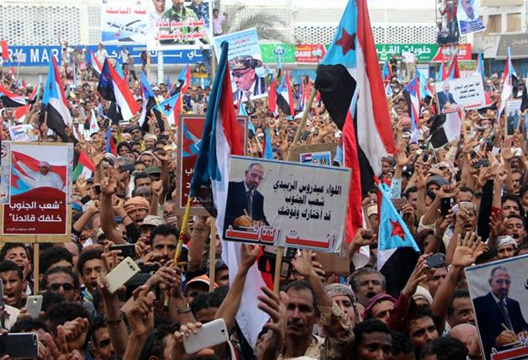 |
On Friday, the Gulf Cooperation Council (GCC) backed Yemeni President Abd-Rabbu Mansour Hadi in rejecting the formation of a transitional political council in southern Yemen. The President and GCC believe the formation of the council “targets the country’s interests, its future, and social fabric” by calling for the separation of southern Yemen. Southern governor Major General Aidarous Al-Zubaidi, who formed the council, has been invited to Saudi Arabia to meet with GCC members. Comment: The formation of the council comes after massive rallies in the South that called for the formation of a body representing southerners. The new council has representatives from all the southern provinces. Yemen was previously two countries until 1990 when the North and South unified. After unification, former President Ali Abdallah Saleh, who is now allied with Houthi rebels, marginalized the southern population. (Asharq Al-Awsat, Middle East Monitor, Al Jazeera)
|
|
|
|
|
|
REGIONAL: Particle accelerator laboratory opens to promote regional cooperation
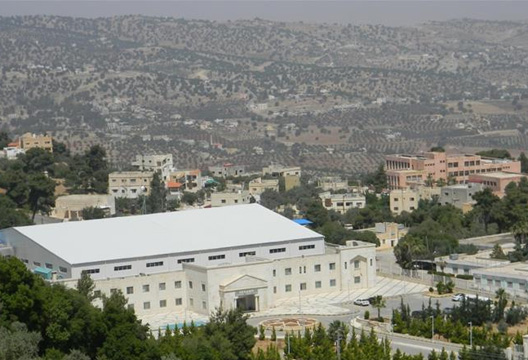 |
|
On Tuesday, the Middle East’s first particle accelerator opened in Allan, Jordan in partnership with the United Nations Educational, Scientific and Cultural Organization (UNESCO). The facility was named the Synchrotron-light for Experimental Science and Applications in the Middle East (SESAME). The laboratory has eight member states and 17 observing states and aims to build “scientific and cultural bridges” between regional countries to promote understanding and tolerance through international cooperation. The project also intends to mitigate brain drain to northern countries by providing state-of-the-art technology to local researchers. Comment: The facility was formally founded in 2004 after Nobel Laureate Professor Abdus Salam began advocating for the project in 1995. Particle accelerators produce beams of highly charged particles that can be used for a variety of research purposes, including nuclear physics. (Haaretz, Al Jazeera, Christian Science Monitor)
Researched/Written by Raghda Karajah
|
|
|
|
|
|
INDIA/PAKISTAN: India and Pakistan face off in the International Court of Justice
On Thursday, the International Court of Justice (ICJ) stayed the Pakistan-ordered execution of an alleged Indian spy, Kulbhushan Jadhav. In the preliminary hearing on Monday, India argued against Pakistan’s sentencing of Jadhav, claiming Pakistan violated the Vienna Convention on Consular Relations by restricting Jadhav’s access to legal assistance. Pakistan countered that consular access is not an absolute right under the convention. Comment: Last month, Pakistan sentenced Jadhav to death on charges of espionage and sabotage. India denies Jadhav is a spy. (Dawn, New Indian Express, New World India, Al Jazeera)
|
|
|
|
|
|
NEPAL: Local elections held for the first time in 20 years
On Sunday, the polls closed for Nepal’s initial phase of local elections, held for the first time since 1977. During Phase One, the Elections Commission estimated voter turnout at 71 percent. Phase Two, to be held on June 14, includes four southern provinces where the risk for electoral violence is high. The minority Madhesi population chose to boycott the vote. More than 50,000 candidates are running for election across the country’s 283 counties. Comment: The five-year term of those elected in 1977 lapsed during the country’s civil war and until this week’s elections, un-elected bureaucrats have held local positions. The Madhesi population refuses to participate in the election until the constitution is amended to meet several of their demands, including the revision of provincial boundaries. (Nepali Times, Al Jazeera, Reuters)
|
|
|
|
|
|
PAKISTAN: Construction workers attacked, eight killed
On Saturday, ten laborers were shot – eight of whom were killed – while constructing roads as part of the USD 57 billion Chinese “Belt and Road” initiative, integral to the success of the Chinese-Pakistan Economic Corridor (CPEC). The shooting occurred in the Balochistan province, which has long been home to separatist militants demanding a greater share of the area’s resources. The Balochistan Liberation Army claimed responsibility for the attack in a call to AFP. Comment: According to security officials, 44 Pakistani workers have been killed since 2014 by militants attempting to inhibit construction along the economic corridor. In 2015, Pakistan’s military allocated more than 10,000 troops to the region; they continue to protect workers along the corridor. (Dawn, Hindustan Times, Reuters)
Researched/Written by Kaleigh Thomas
|
|
|
|
|